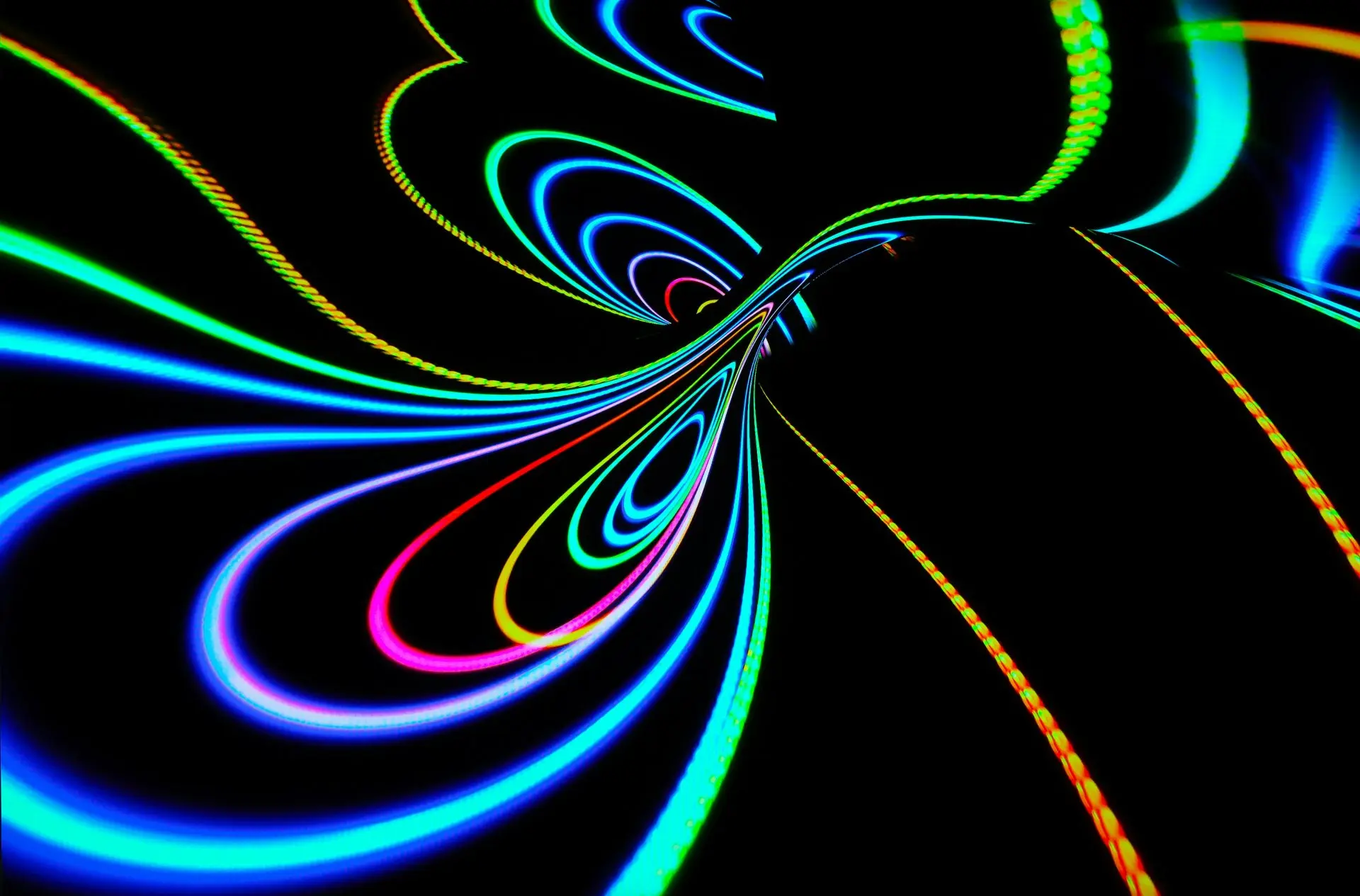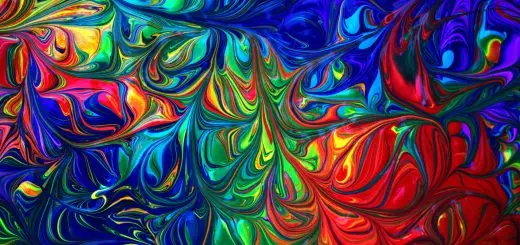The Devil Tarot Card: What Does It Mean?

Looking for more amazing products? Check out our online store and explore our collection here! Happy shopping!
Before diving in, please note: This post is for informational purposes only. If you’d like to know more about how we approach topics, feel free to check out our friendly Disclaimer Page.
Hey there, amazing readers! 
We’re committed to delivering quality posts, and your support (even just sticking around despite the ads) means everything to us. So, bear with us, and thanks for helping us keep the good vibes rolling. Now, on to the fun stuff!
TRANSLATE BUTTON AT THE END OF THE ARTICLE
A Quick Overview
Ah, the Devil Tarot card!
It often evokes a mix of intrigue and anxiety.
Commonly misconstrued as a harbinger of doom, this card can actually serve as a powerful tool for personal insight.
In this cheerful guide, we’ll demystify the Devil card, exploring its symbolism and meanings, highlighting its positive aspects, and showing how it can lead to personal growth.
So grab your favorite cup of tea, and let’s dive into this fascinating subject!
Understanding the Devil Tarot Card: A Cheerful Guide
Initially, seeing the Devil card might provoke a sense of fear.
It features a horned figure, often surrounded by chains, which can seem menacing.
However, this card doesn’t signify evil.
Rather, it points to the parts of ourselves that we often ignore or suppress.
The Devil card invites us to examine our habits, desires, and even fears.
Think of it as that honest friend who tells you what you need to hear, even if it stings a little.
In readings, its presence can signify a need to confront our shadows and acknowledge what holds us back.
This card encourages us to embrace our human nature, including our flaws and desires.
After all, we all have those pesky little temptations, don’t we?
If we take a closer look, we might find that this card isn’t about punishment.
Instead, it emphasizes the importance of self-awareness and making conscious choices.
The Devil card can also signify a turning point.
It can be a call to break free from self-imposed limitations.
So, don’t panic if it appears!
Instead, take it as an invitation to explore and grow.
The Symbolism Behind the Devil Tarot Card Explained
The imagery depicted in the Devil card is rich with symbolism.
The horned figure often represents our primal instincts and desires.
It’s as if the card is saying, “Hey, we all have a darker side!” The chains around the figures typically depicted on the card?
They can symbolize bondage but also the illusion of bondage.
You might notice that the chains can appear loose, suggesting that they can be easily broken.
This is a gentle reminder that we have the power to free ourselves from what binds us—be it unhealthy habits, toxic relationships, or negative thought patterns.
The dual figures at the bottom of the card often represent the duality of human nature.
They can signify the struggle between our higher selves and our base instincts.
This interplay reminds us that we’re multidimensional beings with a mix of light and dark within us.
Additionally, the presence of fire around the Devil can symbolize transformation.
Fire, while potentially destructive, also provides warmth and light.
It suggests that our darker impulses can lead to growth and renewal if we channel them appropriately.
The colors used in the card also carry meaning.
Dark reds and blacks may evoke feelings of fear or danger, while yellows can indicate a warning.
By paying attention to these colors, we can glean more insight into our own emotions and situations.
Common Misconceptions About the Devil Tarot Card
When it comes to the Devil card, many misconceptions abound.
One common belief is that it always signifies negativity or bad luck.
While it’s true the card can indicate challenges, it doesn’t inherently spell disaster.
It’s essential to approach it with an open mind.
Another misconception is the idea that the Devil card is synonymous with actual evil.
In reality, it’s more about acknowledging our darker aspects.
It urges us to face our fears rather than shy away from them.
Many think that the card is about temptation in a purely negative sense.
However, temptation can also lead to growth and self-discovery.
It’s like that delicious dessert we know we shouldn’t eat—indulgence can also bring joy when enjoyed mindfully.
Some fear that the appearance of the Devil card in a reading means they are cursed or doomed.
Yet, this card can be a blessing in disguise, encouraging deep introspection and healing.
Lastly, there’s a belief that the Devil card has no place in positive readings.
But it can serve as a catalyst for change, helping us to break free from something that no longer serves us.
So, let’s challenge those misconceptions and see what the Devil can teach us!
The Devil Card in Different Tarot Decks and Styles
While the traditional Rider-Waite Tarot deck showcases the Devil with familiar imagery, many other decks present this card in unique styles.
Each artist infuses their personality and interpretation, making for a delightful variety of designs.
For instance, in some decks, the Devil appears more as a trickster than a menacing figure.
This playful approach can remind us to take life less seriously and embrace a sense of humor about our struggles.
In decks that highlight nature, the Devil may be represented by wild animals or lush plants.
This interpretation emphasizes our connection to the natural world and the primal instincts that reside within all living beings.
Some modern decks incorporate cultural elements, portraying the Devil in ways that reflect diverse mythologies.
These representations can expand our understanding of the card and reveal fresh perspectives on temptation and desire.
Additionally, many decks use abstract art to convey the essence of the Devil card.
This ambiguity invites readers to tap into their intuition, allowing personal interpretations to flourish based on their unique experiences.
In any deck, the Devil card consistently serves as an invitation for introspection.
Regardless of style, it encourages the reader to delve deeper into their psyche and confront their personal challenges.
Positive Aspects of the Devil Tarot Card Revealed
Surprisingly, the Devil card has a treasure trove of positive aspects!
One of the most significant is its ability to promote self-awareness.
By confronting our shadows, we gain insights that lead to personal growth.
This card also encourages us to embrace our desires.
Too often, we suppress our wants for fear of judgment.
The Devil card reminds us that our desires are a fundamental part of being human.
Embracing them doesn’t mean acting on every whim; it’s about acknowledging and understanding them.
Another notable positive aspect is liberation.
The Devil invites us to break free from unhealthy patterns.
It serves as a powerful reminder that we have the choice to transform our lives, shedding what no longer serves us.
The card also teaches us about the importance of balance.
By recognizing our darker impulses, we learn to integrate them into our lives.
This balance leads to greater harmony and a more authentic self.
Furthermore, the Devil card can signal a time for play and exploration.
It encourages us to enjoy life’s pleasures without guilt.
Embracing joy can enhance our overall well-being and lead to a more fulfilling existence.
Lastly, the card can serve as a motivator to move forward.
By confronting our fears and temptations, we build resilience.
This strength carries us beyond our comfort zones and helps us achieve our goals.
The Devil Tarot Card: A Call for Self-Reflection
Self-reflection is at the core of what the Devil card represents.
It urges us to take a good, long look at ourselves and ask tough questions.
What are we afraid to confront?
What desires do we suppress?
Maybe you find yourself stuck in a cycle of negative thoughts.
The Devil card is your gentle nudge to explore those feelings.
What lies beneath the surface?
Is it a fear of failure or a longing for acceptance?
Sometimes, we cling to unhealthy relationships or habits.
The Devil card asks us to assess these attachments.
Are they elevating our lives or dragging us down?
This moment of reflection can be uncomfortable but ultimately liberating.
Self-awareness often leads to significant breakthroughs.
When we confront our shadows, we can choose to change.
This card pushes us toward personal transformation.
Journaling can be an effective tool during this self-reflection process.
By writing down your thoughts, you can clarify your feelings and recognize patterns.
This practice can help you make sense of the messages the Devil card brings.
Remember, self-reflection is a journey, not a destination.
The Devil card encourages us to keep exploring our inner landscapes, unearthing lessons and insights along the way.
How to Interpret the Devil Card in a Reading
Interpreting the Devil card in a reading requires a blend of intuition and knowledge.
Context matters tremendously, so always consider the surrounding cards.
If the Devil appears with cards like the Tower or Death, it might signal a deep-seated fear or a significant change on the horizon.
But if paired with the Sun or the Ace of Cups, it can suggest liberation from burdens or a joyful embrace of your desires.
When interpreting the Devil, consider your own feelings and reactions.
What emotions come up when you see the card?
Trust your intuition; this card nudges you to delve into your psyche.
Ask yourself some guiding questions: Are there any patterns in my life that feel limiting?
What are my current temptations?
This self-inquiry can yield valuable insights and guide your interpretation.
Additionally, consider the question posed during the reading.
If you’re seeking guidance on a relationship, the Devil might point to codependency or unhealthy attachments.
In a career context, it could highlight fears that hold you back from pursuing your passions.
Ultimately, while the card may appear daunting, it’s a call to explore, confront, and transform.
Approach it as an opportunity for dialogue with your inner self.
The Devil Tarot Card and Its Connection to Temptation
Temptation is a central theme of the Devil card, but it’s essential to examine it from various angles.
It’s not just about succumbing to vice; it’s also about recognizing our desires.
When we think of temptation, we often picture indulgence—overeating, substance use, or unhealthy relationships.
However, the Devil card invites us to look closer.
What cravings lie beneath our impulses?
Are we seeking comfort, validation, or escape?
Sometimes, we may fear temptation too much, leading us to deny our needs.
The card suggests that acknowledging these desires can lead to healthier choices.
It’s like allowing yourself a piece of chocolate instead of denying your craving altogether.
Furthermore, the Devil card connects to the idea of temptation as a teacher.
Each temptation can reveal something valuable about ourselves.
For instance, why do we feel the urge to procrastinate?
What emotions drive our cravings?
Embracing this perspective shifts temptation from something to fear into an opportunity for growth.
It’s about finding balance and making conscious choices rather than letting impulses control us.
Lastly, the Devil card reminds us that we all have temptations.
We’re human!
Embracing this aspect of our nature allows us to approach our struggles with compassion and understanding.
Embracing Freedom: Lessons from the Devil Card
One of the most liberating lessons from the Devil card is that freedom comes from within.
We often think of freedom as external—breaking away from a job or a relationship.
But true freedom starts with self-awareness.
The chains depicted in the Devil card symbolize the limitations we place on ourselves.
They remind us that we often hold the key to our liberation.
By confronting our fears and desires, we can break free from our self-imposed prisons.
This card encourages us to take responsibility for our choices.
It’s easy to blame outside circumstances for our feelings of entrapment.
However, the Devil card reminds us that we have the power to change our narratives.
Embracing our desires can also lead to a sense of freedom.
When we accept our wants, we can pursue happiness more authentically.
This doesn’t mean giving in to every impulse, but rather choosing to acknowledge what we truly want.
Additionally, the Devil card invites us to recognize that discomfort can lead to growth.
It’s in those moments of struggle that we can learn the most about ourselves.
By facing challenges head-on, we can experience profound freedom.
Lastly, the Devil card offers reassurance: we can free ourselves from what no longer serves us.
Whether it’s a toxic belief, a harmful habit, or a draining relationship, the power to change lies within us.
The Devil Card in Relationships: What to Know
When the Devil card appears in a relationship reading, it often highlights the dynamics at play.
It may signify intense passion, but it can also indicate unhealthy attachments.
The card encourages you to assess the balance within your relationship.
Are you feeling trapped or dependent on your partner?
This card serves as a prompt to examine any codependent patterns.
Moreover, the Devil card can signal a need for honest communication.
If you sense that certain desires or needs are being suppressed, it’s time to address them.
Open dialogue can pave the way for deeper connections.
In addition, the card may suggest the importance of personal freedom within a partnership.
It’s vital to maintain your individuality while being part of a couple.
The Devil card nudges you to celebrate both your shared experiences and your personal journeys.
If you’re single, the Devil card might point to temptations that distract you from finding a fulfilling relationship.
It encourages you to explore what you truly seek in a partner rather than succumbing to fleeting desires.
Lastly, whether you’re in a relationship or not, the Devil card invites self-love.
Acknowledge your worth and desires, and strive to attract relationships that honor your true self.
How the Devil Tarot Card Encourages Personal Growth
The Devil card might seem intimidating, but its messages are profoundly empowering.
It beckons us toward personal growth by urging us to confront our innermost fears and desires.
Embracing the lessons from the Devil card can help us break free from self-destructive patterns.
It challenges us to identify what aspects of our lives need change.
Acknowledging these issues is the first step toward transformation.
Self-reflection is crucial.
The Devil card prompts us to ask ourselves hard questions.
What do I truly want?
What fears are holding me back?
This self-inquiry can lead to powerful revelations.
The card also teaches us about boundaries.
As we explore our desires, we learn the importance of setting limits on what no longer serves us.
This clarity fosters healthier relationships with ourselves and others.
Another avenue for growth lies in embracing vulnerability.
The Devil card reminds us that it’s okay to express our fears.
Sharing our struggles can strengthen our connections and foster a supportive community.
Ultimately, the Devil card encourages us to take action.
Once we identify our fears and desires, we can make conscious choices that align with our true selves.
It’s about taking the reins of our lives.
Concluding Thoughts: Embracing the Devil Tarot Card
In closing, the Devil Tarot card is not a foe but a friend in disguise.
It serves as a powerful reminder that we are complex beings with both light and shadow.
By embracing the lessons from this card, we can cultivate self-awareness, confront our fears, and experience profound personal growth.
So next time you encounter the Devil card in a reading, don’t shy away!
Instead, welcome the opportunity for introspection and transformation.
This card offers insights that can lead to liberation and fulfillment.
Remember, the key to understanding the Devil card lies in recognizing that it’s a reflection of our human nature.
By embracing all parts of ourselves, we can live more authentically and joyfully.
Let’s face our shadows, learn from them, and dance in the light!

The Enlightenment Journey is a remarkable collection of writings authored by a distinguished group of experts in the fields of spirituality, new age, and esoteric knowledge.
This anthology features a diverse assembly of well-experienced authors who bring their profound insights and credible perspectives to the forefront.
Each contributor possesses a wealth of knowledge and wisdom, making them authorities in their respective domains.
Together, they offer readers a transformative journey into the realms of spiritual growth, self-discovery, and esoteric enlightenment.
The Enlightenment Journey is a testament to the collective expertise of these luminaries, providing readers with a rich tapestry of ideas and information to illuminate their spiritual path.
Our Diverse Expertise
While our primary focus is on spirituality and esotericism, we are equally passionate about exploring a wide range of other topics and niches 

To ensure we provide the most accurate and valuable insights, we collaborate with trusted experts in their respective domains 
Our blog originally focused on spirituality and metaphysics, but we’ve since expanded to cover a wide range of niches. Don’t worry—we continue to publish a lot of articles on spirituality! Frequently visit our blog to explore our diverse content and stay tuned for more insightful reads.
Hey there, amazing reader! 
Check out our store here and take a peek at some of our featured products below! Thanks for being awesome!











